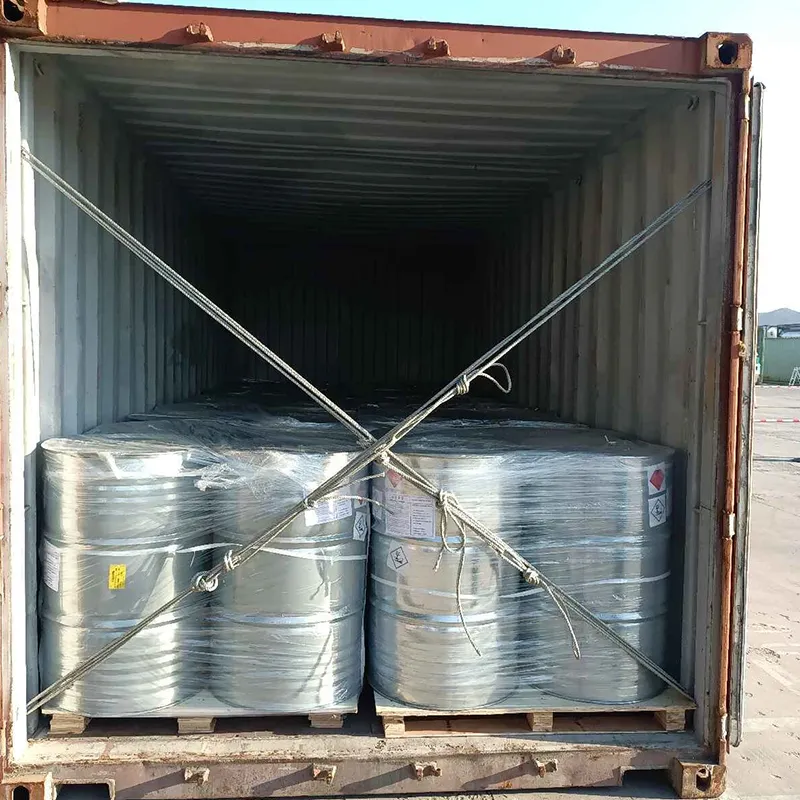
ammonium sulfate fertilizer
Ammonium Sulfate Fertilizer A Comprehensive Overview
Ammonium sulfate fertilizer is a widely used nitrogen source in agriculture, offering several benefits that make it a popular choice among farmers and gardeners alike. Comprising about 21% nitrogen and 24% sulfur, it serves as an effective nutrient provider for various crops, enhancing both growth and yield. This article delves into the characteristics, benefits, application methods, and environmental considerations associated with ammonium sulfate fertilizer.
Composition and Characteristics
Ammonium sulfate is a chemical compound formulated by the combination of ammonia (NH3) and sulfuric acid (H2SO4). Its unique composition allows it to be soluble in water, enabling easy absorption by plants. The nitrogen found in ammonium sulfate is in the ammonium form, which is readily available for uptake by roots and helps in promoting vegetative growth. The sulfur component also plays a crucial role in the synthesis of amino acids and essential proteins, contributing to overall plant health.
Benefits of Ammonium Sulfate
1. Nutrient Supply The primary benefit of ammonium sulfate is its high nitrogen content, which is vital for chlorophyll production and green foliage development. The nitrogen helps plants to grow faster and produce more leaves, resulting in increased crop yields.
2. Acidic Soil Mitigation Ammonium sulfate can help in maintaining soil pH. It is particularly beneficial for crops that thrive in slightly acidic conditions. The sulfur in this fertilizer can lower the soil pH, thereby benefiting plants that prefer such environments.
3. Enhanced Crop Quality By providing both nitrogen and sulfur, ammonium sulfate can enhance the quality of crops. For instance, sulfur is essential for certain vitamins and amino acids, which can improve the nutritional value of crops like mustard and rapeseed.
ammonium sulfate fertilizer

4. Cost-Effectiveness Ammonium sulfate is often more affordable than other nitrogen fertilizers, making it an economically viable option for many farmers. Its efficiency in promoting growth can also lead to higher profits through increased yields.
Application Methods
Ammonium sulfate can be applied in various forms, such as granular or liquid. The application rate typically depends on the crop type, soil type, and nutrient requirements. Farmers often apply it during the planting season or as a side-dress in the growing season to ensure optimal nutrient uptake. Broadcast spreading, banding, and foliar spraying are common methods for application.
Environmental Considerations
While ammonium sulfate offers practical advantages, it is essential to use it responsibly to minimize environmental impacts. Over-application can lead to nitrogen runoff, contributing to water pollution and the eutrophication of nearby water bodies. Additionally, the sulfur component may cause acidification if used excessively. Therefore, proper soil testing and adherence to recommended application rates are crucial to avoid such issues.
Conclusion
Ammonium sulfate fertilizer is an invaluable tool in modern agriculture, providing essential nutrients that foster robust plant growth and maximize yields. Understanding its composition, benefits, and proper application methods enables farmers to utilize this fertilizer effectively while minimizing environmental impact. As agriculture continues to evolve, ammonium sulfate will remain a significant player in promoting sustainable farming practices and ensuring food security.
-
nitrile-rubber-honoring-strict-production-standardsNewsAug.22,2025
-
aspartame-ingredients-honoring-food-safety-valuesNewsAug.22,2025
-
fertilizer-for-balanced-plant-nutritionNewsAug.22,2025
-
cyanide-gold-processing-with-high-purity-additivesNewsAug.22,2025
-
formic-acid-in-textile-dyeing-applicationsNewsAug.22,2025
-
aluminum-hydroxide-gel-in-skincare-productsNewsAug.22,2025
-
Regulatory Compliance for Global Mining Chemicals UseNewsAug.12,2025
Hebei Tenger Chemical Technology Co., Ltd. focuses on the chemical industry and is committed to the export service of chemical raw materials.
-

view more DiethanolisopropanolamineIn the ever-growing field of chemical solutions, diethanolisopropanolamine (DEIPA) stands out as a versatile and important compound. Due to its unique chemical structure and properties, DEIPA is of interest to various industries including construction, personal care, and agriculture. -

view more TriisopropanolamineTriisopropanolamine (TIPA) alkanol amine substance, is a kind of alcohol amine compound with amino and alcohol hydroxyl, and because of its molecules contains both amino and hydroxyl. -

view more Tetramethyl Thiuram DisulfideTetramethyl thiuram disulfide, also known as TMTD, is a white to light-yellow powder with a distinct sulfur-like odor. It is soluble in organic solvents such as benzene, acetone, and ethyl acetate, making it highly versatile for use in different formulations. TMTD is known for its excellent vulcanization acceleration properties, which makes it a key ingredient in the production of rubber products. Additionally, it acts as an effective fungicide and bactericide, making it valuable in agricultural applications. Its high purity and stability ensure consistent performance, making it a preferred choice for manufacturers across various industries.





